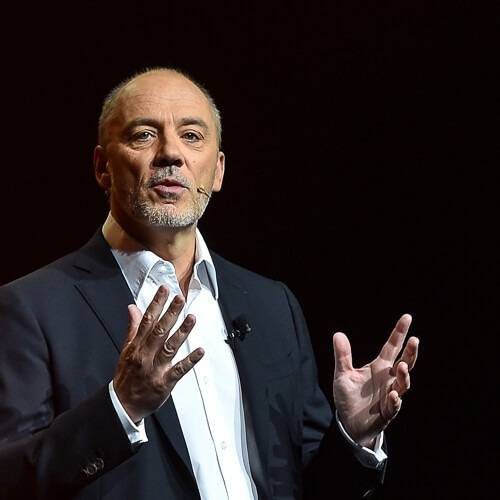
Stéphane Richard has proved to be one of the telecom industry's more durable chief executives. After joining France-based Orange in 2009, he became group CEO and chairman of the board of directors in March 2011 and has held onto those two roles ever since.
Richard's mandate comes to an end in May 2022. However, the French national has said he is keen to retain at least one of his two positions.
In an interview with Journal du Dimanche (JDD), Richard said he would like to remain chairman but would be prepared to let go of the CEO role following a separation of the two functions.
Figure 1:  Split personality: Come 2022, Orange CEO and chairman Stéphane Richard would be content to remain chairman.
Split personality: Come 2022, Orange CEO and chairman Stéphane Richard would be content to remain chairman.
(Source: Orange)
The French state, which still owns a 23% stake in Orange, has apparently expressed a wish for the roles of CEO and chairman to be split. Richard appears sanguine about this, and indicates that the role of chairman is increasingly taking up more of his time.
As for why he wants to stay on beyond his mandate? He just really likes Orange, it seems.
Some hurdles to overcome
There are, however, two key issues that could scupper Richard's wishes to retain ties with his beloved group.
In June, Orange faced fallout after a major network outage prevented calls to the emergency services in France. The matter has been a source of enormous embarrassment to the operator, and to Richard himself.
It's fair to say that the French government was far from impressed. Richard has no doubt been on an ongoing quest to restore Orange's reputation with ministers ever since.
The second issue pertains to the long-running "affaire Bernard Tapie," with a much-anticipated ruling on the matter by the Court of Appeal in Paris due on October 6.
Richard is accused of "complicity in fraud" and "complicity in embezzlement of public funds." The allegations dated back to 2008, when Richard was accused of helping businessman Bernard Tapie cheat the French government out of around €403 million (US$455 million). He was working as chief of staff to then-finance minister Christine Lagarde at the time.
The Financial Times provided a handy timeline of the Tapie affair in 2019. It all began when Tapie sued the French bank Crédit Lyonnais over the sale of his stake in sports group Adidas, accusing the bank of defrauding him.
Want to know more about 5G? Check out our dedicated 5G content channel here on Light Reading.
In April 2019, French state prosecutors called for Richard to be sentenced to three years in jail – with half the time suspended – for his part in an alleged case of fraud and misuse of public funds involving Tapie.
They also demanded a five-year sentence for Tapie himself. In June 2021, Reuters reported that prosecutors are seeking similar penalties to the ones pronounced two years ago in a first fraud trial that ended with Richard being cleared of any wrongdoing.
Richard told the JDD that he hopes to be acquitted, as he was in the lower court in 2019.
"If there were to be a conviction, the board of directors and I would immediately review the situation and make the decisions that are necessary in the best interests of Orange," Richard said.
In terms of its business performance, Orange has seen some signs of improvement in recent months following a dismal, coronavirus-blighted performance in the first half of 2020. However, the group posted a net loss of €2.6 billion ($3 billion) for the second quarter, primarily owing to continuing difficulties in Spain.
Related posts:
— Anne Morris, contributing editor, special to Light Reading
Read more about:
EuropeAbout the Author(s)
You May Also Like




_International_Software_Products.jpeg?width=300&auto=webp&quality=80&disable=upscale)







